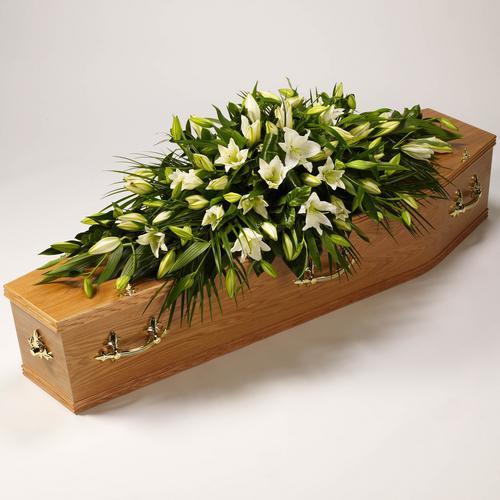Source: . . . as MDC Alliance leader fears split | Daily News

Ahead of the MDC Alliance’s 5th congress, the party’s president Nelson Chamisa has sensationally claimed that Zanu PF is working around the clock to ensure that the country’s biggest opposition movement splits into two.
This comes as senior officials in Zanu PF have openly declared
interest in the opposition party’s impending congress to be held later next month.
Chamisa is likely to face his secretary general Douglas Mwonzora at the congress.
Mwonzora has openly declared that he has rights, including contesting the sitting leader since he is a “full member of the MDC.”
Zanu PF politburo members Victor Matemadanda and Lewis Matutu have publicly stated their preference of the candidature of Mwonzora ahead of Chamisa, the 41-year-old who the ruling party regard as immature.
As a result, Chamisa’s backers have come out guns blazing
threatening to mercilessly descend on anyone who will challenge the incumbent.
Tempers are flaring in the MDC, with fault lines now emerging between those who back Chamisa and Mwonzora, amid growing fears that the party could split again as happened in the past.
Since its formation in 1999, the MDC has split three times, first in 2005 after disagreements over participation in the Senatorial elections.
The second split came in 2014 after the party’s dismal showing in the elections where former president Robert Mugabe thumped the late MDC leader Morgan Tsvangirai by a wide margin.
The MDC also split last year following a vicious and acrimonious battle to succeed Tsvangirai after his death.
Although former officials who had walked away from the Tsvangirai led MDC are now back in the broader MDC Alliance, there are several individuals who are dissatisfied with the leadership of Chamisa who came to power through an internal coup.
In a thinly veiled attack on Zanu PF, Chamisa said non MDC members cannot dictate what happens in their movement.
The MDC leader said he is aware that their foes are working through the witching hours and burning the midnight oil to see the upcoming congress in disarray and to destroy the movement and throw it into jeopardy.
“The MDC will never split for it is the people’s project. The people cannot split. The people’s project will never be split by selfish motives. Individuals may from time to time elect and choose to get lost but along the way, often sooner, they will either find themselves or be found,” said Chamisa.
Last week, government was forced to deny that it was interfering with the MDC impending congress saying it had bigger fish to fry.
Information, Publicity and Broadcasting Services deputy minister Energy Mutodi dismissed talk that government was making arrangements to use security agents to weaken the opposition.
“Government is not worried who emerges the winner at the MDC congress, be it Chamisa or Mwonzora. None of the two is capable of overcoming our 2023 Zanu PF candidate…Mnangagwa. We have started reviving the economy and the gains are open for everyone to see,” Mutodi said.
But the MDC youth assembly is adamant that the ruling party wants a “weaker candidate” to emerge as the party’s leader in May “for obvious reasons” — vowing that this would not happen.
“It is saddening that Zanu PF wants to give us a leader and we know why. We are, however, clear as youths and other organs of the party that we have Chamisa as our leader and the decision is ours not Zanu PF’s,” said Lovemore Chinoputsa, the MDC youth assembly secretary-general.
MDC vice chairperson Tendai Biti has angrily reacted to the
suggestions that Mwonzora was likely to emerge as the new party leader after the May congress.
He said the party would not accept to be led by “a ruling party chosen half-wit”.
“We will reject any nincompoop given to us by Zanu PF. We already have a candidate in … Chamisa. So, we will not tolerate that.
“Our duty is to protect the legacy of our dear leader Morgan
Tsvangirai and we know with Chamisa we will be able to do that,” Biti thundered.
Chamisa has, however, been at pains preaching peace.
“Therefore, when we speak of unity in the MDC, we refer to the united action of the people through the concert of a festival of ideas, as they put aside their racial, tribal, gender and class differences to map out a common national development trajectory. The people shall govern! We must not be extremists causing hatred. We must be measured
in our language and tone.
“What makes the MDC great is the celebration of dissent and diversity. The MDC is intact and growing bigger into a post-independence liberation force, democratization catalyst and transformation agent in Zimbabwe.
“Nonetheless, we will be vigilant and guard against infiltration and violence from without. Non-members cannot manage internal affairs,”
In a conciliatory message, Chamisa said the party is determined to add instead of subtracting and will try everything possible to ensure that it remains united.
“We want to grow the base. As I always say, we grow by adding, where necessary by multiplying and never by dividing or subtracting. To add is to strengthen and to subtract is to weaken. We must remain focused on the goal. That which unites us far exceeds whatever might separate us. Together we shine, asunder we are all dust,” said Chamisa.
The post . . . as MDC Alliance leader fears split appeared first on Zimbabwe Situation.

